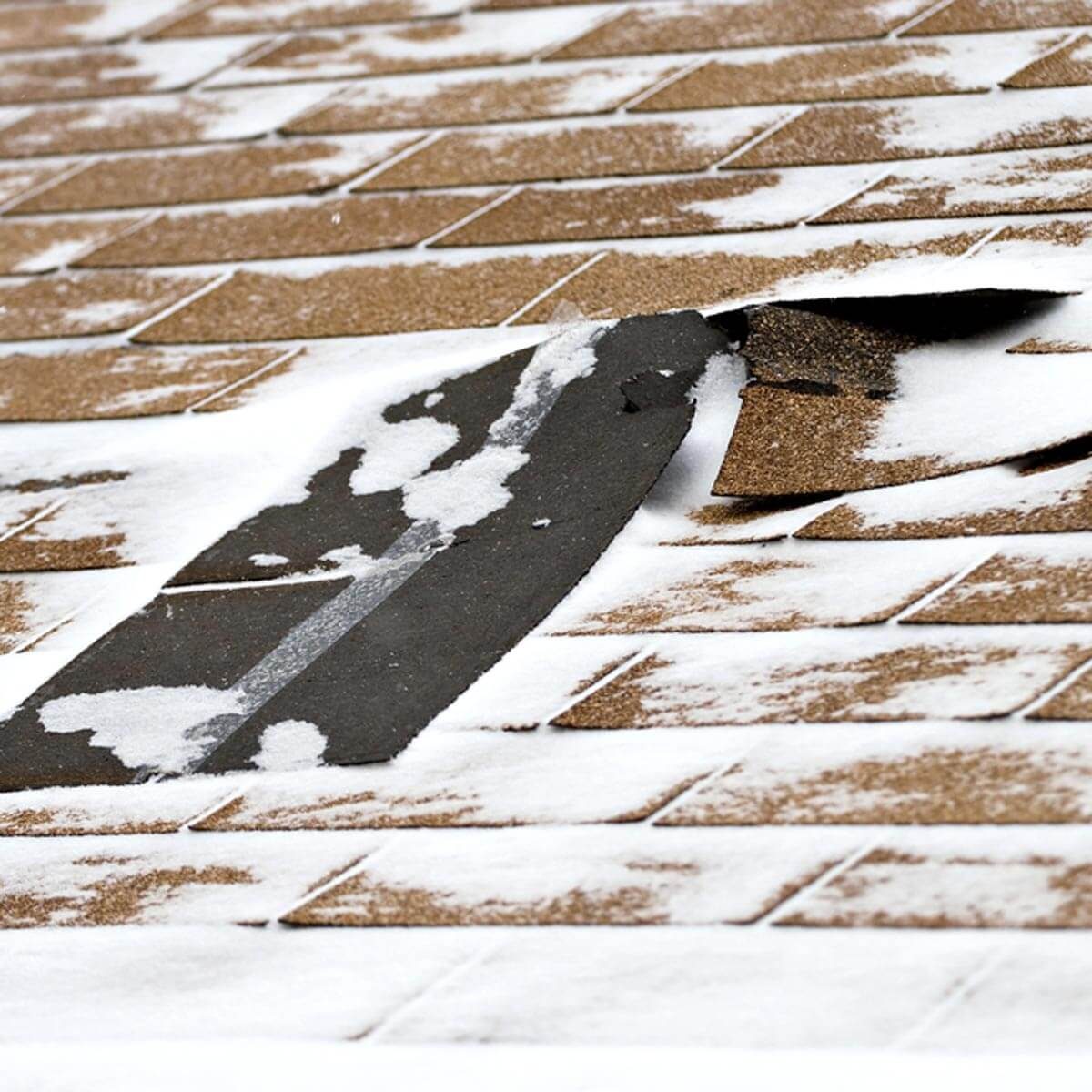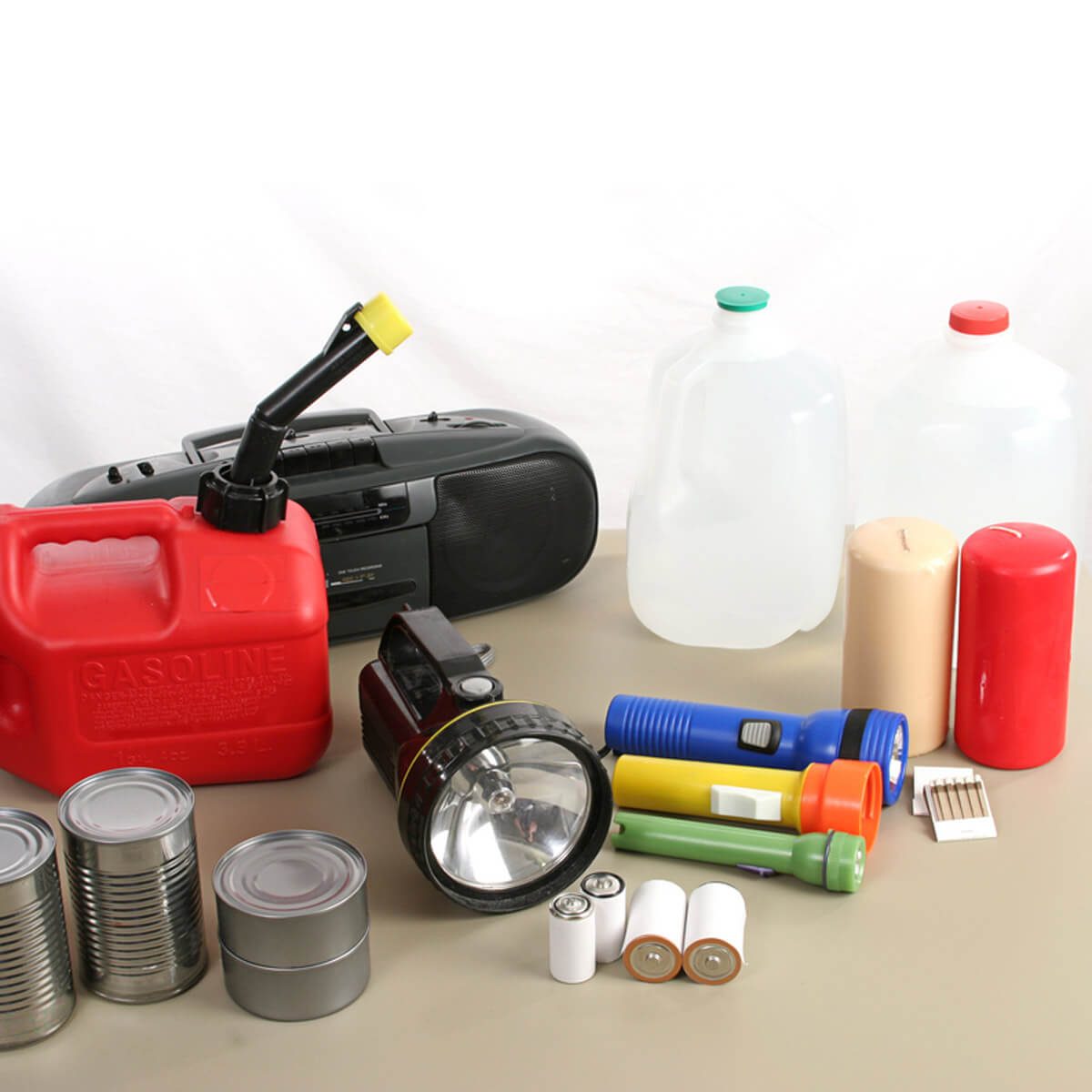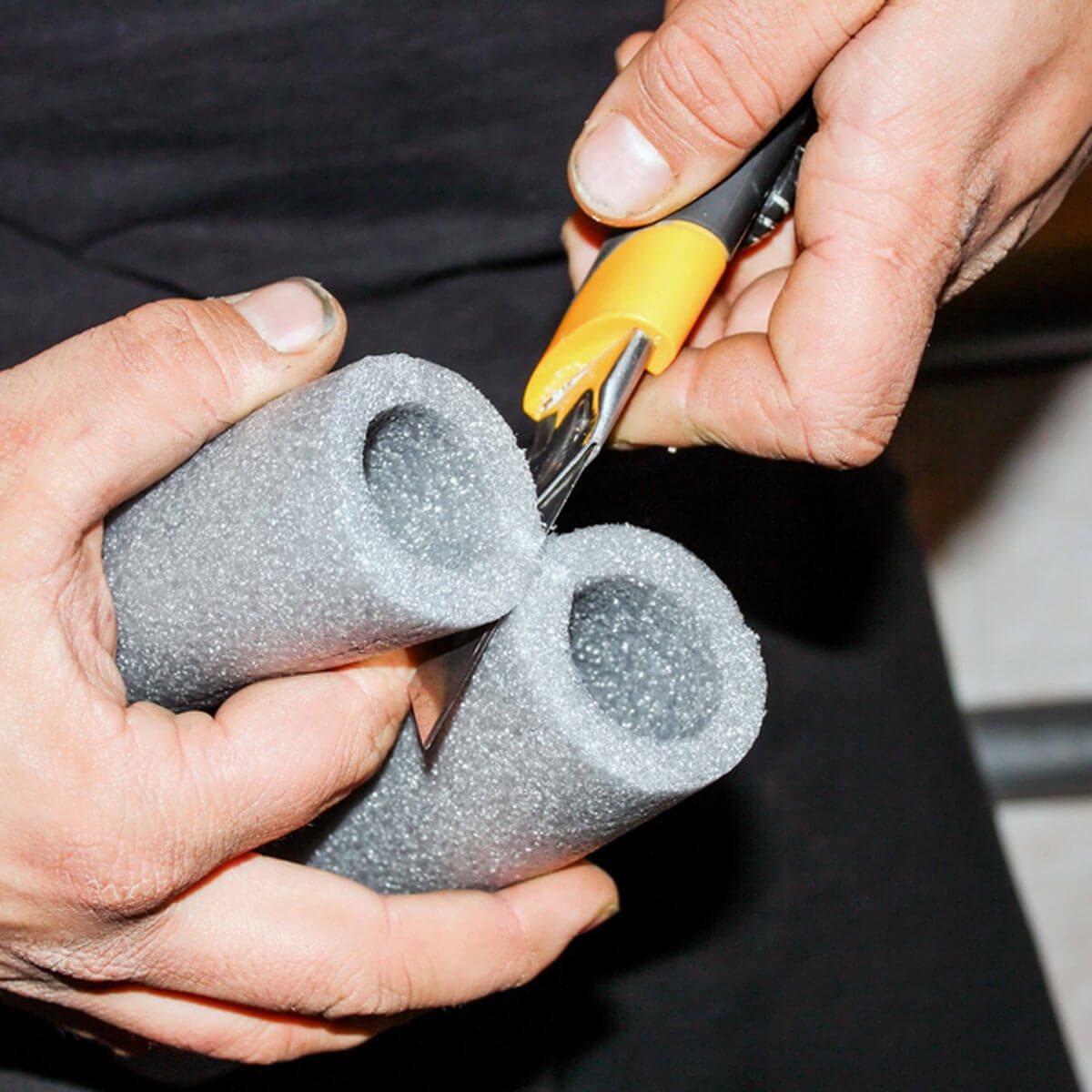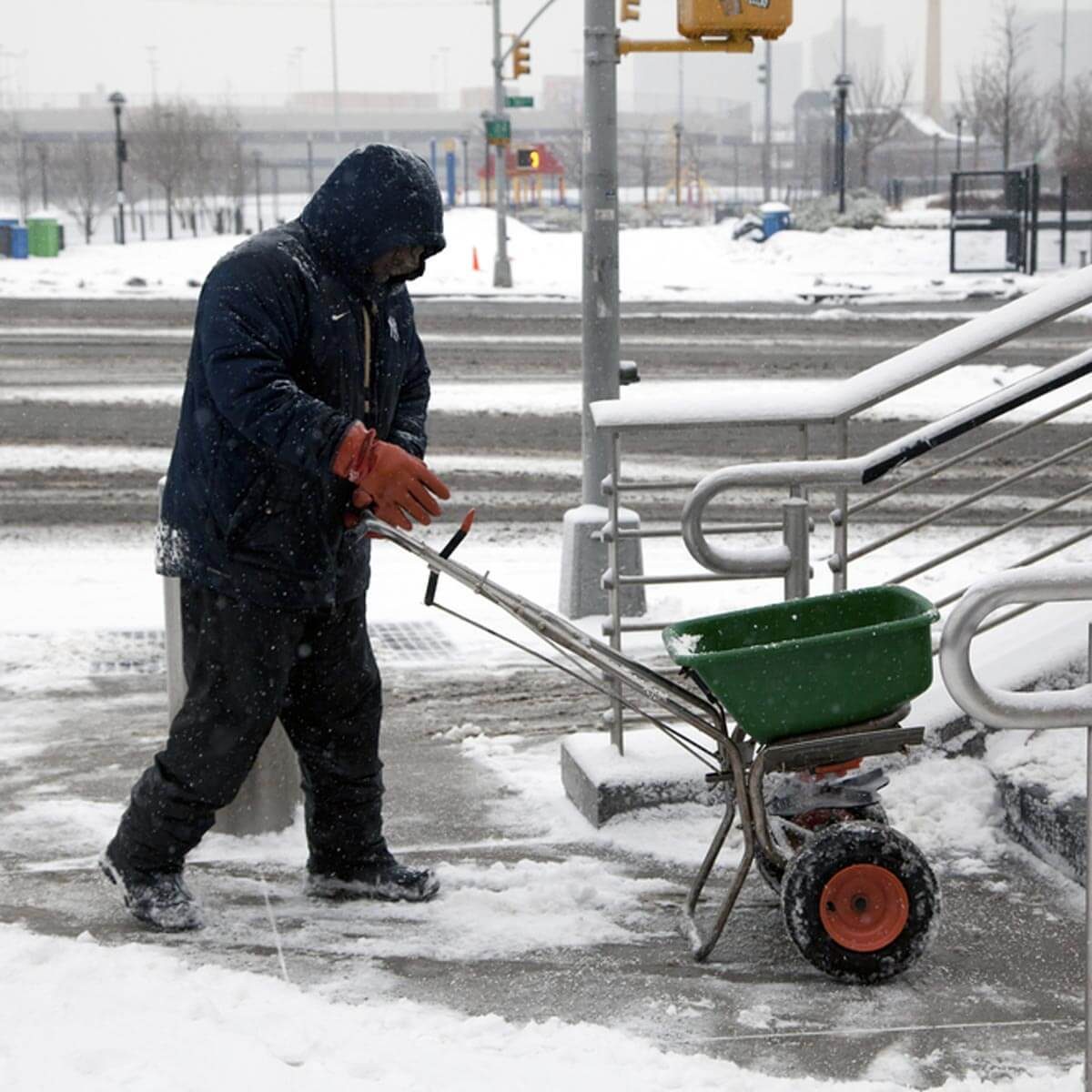1
/
12

Take a Walk Around Your House and Look for Vulnerabilities
Walk around your home and yard with something on which to take notes. And look for anything that might be a problem during a winter storm, especially when it comes to structural issues. Look for loose siding or shingles that could blow away. Also, openings where wind-swept rain could enter, toys or appliances that need to be stored or covered to protect them from strong winds. Take your time and make sure to examine the walls, windows, roof and foundation. Note anything that needs to be replaced or fixed and get it done within the week. Protect your house by finding out which parts of your home are most susceptible to winter storm damage.
2
/
12

Cut Down and Cover Up
Winter preparedness begins before the first snowflake flies. By cut down, we are referring to all overhanging tree limbs or older limbs that could snap off during a winter storm. And overgrown bushes and shrubs may need some trimming as well, especially if they are isolated and bear the full force of the wind. Also on covering up, remember to protect your outdoor faucets from freezing. If you are expecting a lot of snow, think about covering your grill with a tarp. (Never cover up a heat pump, which needs access to air.)
3
/
12

Seal and Caulk Drafts and Cracks
If you still have that one window that won't close tight or that door that always seems to have a draft even when shut, it's time to make some repairs. New weatherstripping can solve many draft problems if your old weatherstripping has worn away. But you may also want to consider replacing badly damaged windows or doors that will fare badly in a winter storm. Smaller cracks should be caulked to prevent moisture damage, as well.
4
/
12

Plan an Alternate Method of Heating
What happens if the power goes out and your primary heating source won't work? Most furnaces and gas fireplaces require electricity. That means you need either a generator that can supply your home with enough power to run large heating appliances or an alternate source of heating that doesn't require electricity, like a wood stove.
5
/
12

Make a Winter Storm Supplies Checklist and Stock Up
If a winter storm really shuts everything down, it's important to make sure you have enough emergency supplies. And this includes drinkable water, food, a hand-crank radio or similar method of listening to the news, warm clothes, and additional items that you can find on this winter storm checklist. You may also want to stock up on important medications if anyone in your home is treating a long-term condition.
6
/
12

Wrap Vulnerable Pipes in Insulation
Temperatures can drop very low, very fast during a winter storm. And that can be bad for unprotected pipes below or around your home. Especially if they are exposed to low temperatures outside a home's insulation. That can lead to frozen pipes and massive water damage. If it's about to get especially cold, you can wrap vulnerable pipes around the house in insulation to protect them. Leaving sink cabinets open to the warm air and turning faucets onto a cold "drip" can also prevent freezing during winter storms.
7
/
12

Add Extensions to Your Downspouts
The job of a downspout extension is to make sure that water is channeled well away from the house into a gravel pit or other spot where the water can flow away harmlessly, especially if you are facing heavy precipitation (including snow, which may melt very quickly if temperature rise). You may want to buy and install some extensions. Make sure your gutters are in good shape, too!
8
/
12

Buy New Heating Fuel If Necessary
Make sure you have enough wood, if that is your alternate heat source. Or, consider calling your propane supplier for an early refill.
9
/
12

Protect Your Windows from Debris and Damage
Your windows are vulnerable to flying debris in a winter storm, and they may not do well in suddenly freezing conditions, either. And there are many options for protection, from hurricane films and storm shutters to taping plastic sheets around your windows. Storm shutters work well if your climate includes strong storms every winter. Also, a plastic covering is suitable for the occasional bad winter storm.
10
/
12

Check Your Smoke and CO Detectors
Houses tend to stay sealed up for long periods of time during a winter storm. So, it's no surprise that deaths due to accidental fires and carbon monoxide poisoning rise during prolonged winter storms. Also it's very important to make sure that your smoke and CO detectors are in proper working order and have fresh batteries—they really are lifesavers. When you plan your alternate fuel source, check your detectors for all-around winter preparedness.
11
/
12

Stock Up on Ice Melt
When the ice storm passes, you will probably want a way to melt the ice that forms on driveways, paths, patios and sidewalks. And there are many different types of ice melters that contain salt, sand and other ingredients. Be particularly careful of using salt and similar compounds because too much can poison the soil and may also damage vulnerable cement, and some are poisonous to pets.
12
/
12

Locate Your Property Insurance Documents
You don't actually have to read them, but it's important to check on your homeowners insurance documents. And make sure you have easy access to them. Also, if your home does experience damage in a winter storm and you need to make expensive repairs, it's important to understand what's covered and make a claim as soon as you can.